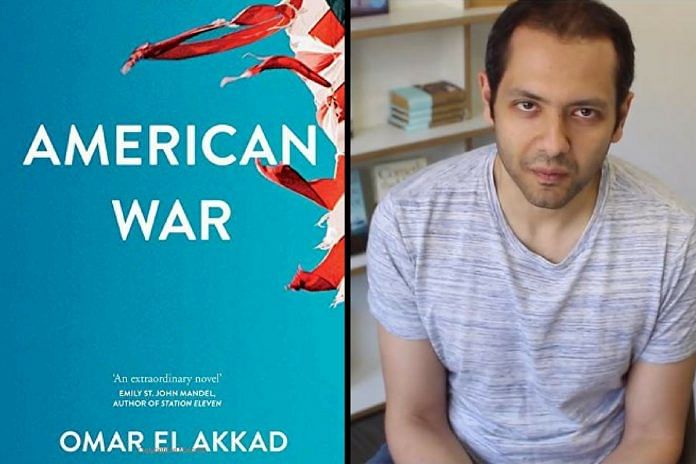American War is a dystopian novel about America that begins with an unfolding age of horror which ultimately turns hollow.
With American War, the suspicion that it is a novel of capitalist implosion and American comeuppance is as natural as the logic of history it follows. When a former war correspondent, born in Egypt and known for his reportage on Afghanistan, Guantanamo, and the Arab Spring, writes of future war in a divided America, the critique is not going to be one of an imaginative future whipped out of thin air. Like 1984 or Brave New World or even Blade Runner, Omar El Akkad’s dystopian novel is about the times we live in. The Second American Civil War which begins in 2074 and ends in 2093 is one whose germ is in the present, and the novel tries to take the divisions of modern-day America to their logical end.
The war is again between the north and the south in an America whose coastline has receded and whose people sleep sweating in the boiling heat of its nights. Fossil fuels have been banned and the south is not ready to give up on its way of life. The President is assassinated by a southern suicide bomber, and the attempt to secede from the union becomes the raison d’être for the war. The new superpower, the Bouazizi Empire, formed after the fifth Arab Spring and headquartered in Cairo, has an uncertain stake in letting the conflict continue. Narrator-historian Benjamin tells us the story of the brutal conflict which ends with the Reunification Plague claiming over 110 million American lives. Our lens, however, is trained on a child, Sara T. Chestnut, who calls herself Sarat so that her name does not end with an inaudible wisp of air being exhaled. Caught in the war without knowing whose side she is on, she witnesses a massacre of innocents by the North and becomes a soldier with her heart set on revenge.
It is the present sense of something going out of control which makes the novel’s future persuasive. We all remember having heard or spoken that the biggest wars of the century will be for energy, and the beauty of American War is that the changes in the world map are traced both physically and politically, knowing that the rising sea-levels would twist the borders that exist on land too. That knowledge, however, is also where the novel staggers.
Works of dystopian fiction trace the emergence of a new world order rooted in the present, and the strength of their exposition is what makes their internal logic consistent. It is unnecessary to explain each and every part of the global world picture, and set up the universe brick by brick. A more useful strategy is the kind followed by Ishiguro in Never Let Me Go. He speaks of the history of a world where clones exist to donate organs simply by looking at the emotional human response to this world. World War Z: An Oral History of the Zombie War too moves into the global by rising from scattered cultural responses to the plague in different parts of the world.
American War tries something more slippery. It uses archival documents, government dispatches, and news reports between chapters to tell us about the unfolding larger picture, of which Sarat is just a small part. However, the political background lacks nuance. The simple and convenient cross between climate change and political motive kills the otherwise persuasive logic of the novel, and by the end, the war becomes meaningless.
Sarat, we are told, still keeps fighting because, as she tells her friend who is now a soldier for the other side: “You’re the only one living who never wronged me.” It’s not country and God; her intent seems to be driven by trauma, and it does not work. Her ordeal through loss and torture is described in terms which speak of the author’s familiarity with Guantanamo, but her trauma does not find adequate articulation. She invites neither sympathy nor scorn; the novel is crippled by a protagonist who can be dismissed because her random acts of violence have no basis. The world which began unfolding to reveal an age of horror turned out to be hollow and without thoughtful consequence.
‘American War’ by Omar El Akkad has been published by Pan Macmillan.



